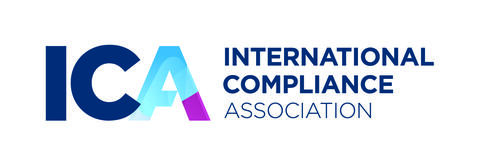
11 Jul 2024 ● Broadgate
5 key skills for 2024: Compliance reimagined

Last year we wrote a piece spotlighting a few key compliance skills for 2023,[1] and since then, we’ve seen the second and third largest bank collapses in US history, generative AI engulf the mainstream, and more regulatory changes than you can shake a well-documented audit trail at.
The ensuing change has led to a rise in demand for talent, marking the start of a bright future for tech-savvy compliance professionals. What does 2024 have in store? What skills will compliance officers need in the era of the AI-enabled workplace?
While evergreen traits – empathy, proactivity, diligence, pragmatism, diplomacy, etc. – are more valuable than ever, it’s impossible to ignore tech’s influence in shaping the responsibilities of the modern compliance professional. Here are our top five skills to consider in 2024.
1. Coding
From automating workflows to monitoring third-party risk, increased tech adoption is augmenting compliance functions everywhere. To use these new tools effectively, compliance professionals must be aware of their vulnerabilities, functionalities, and limitations – an understanding of coding and scripting will therefore prove valuable.
It might not be a necessity right now (depending on the role) but developing an understanding of coding should be on the radar of any future-facing compliance professional.
As coding becomes a core business language, failing to learn the fundamentals may prevent you from understanding system changes, inhibiting your ability to demonstrate compliance to regulators.
2. Cybersecurity
Compliance officers are the stalwart lines of business defence and enablement. In 2024, those lines of defence will need fortifying to hold off cyberthreats.
Cybercrime has never been as sophisticated or as accessible as it is today. A report from Reuters [2] found that data privacy and cybersecurity were far and away the biggest compliance concerns for UK businesses – a finding reflected in the exponential growth of the cybersecurity market (£10.5 billion, with a gross value add of 17% since 2022).[3]
Moreover, regulators will likely place a heavier focus on individual accountability in the coming year, particularly considering the recent review of the SMCR (Senior Managers and Certification Regime). Compliance managers will need to be hypervigilant of their security responsibilities to mitigate both personal and organisational risk.
3. Adaptability
Adaptability is a touchstone in compliance work. Standing still isn’t a viable option, not when the landscape changes so quickly. From the advent of bleeding-edge tech to persistent macroeconomic uncertainty, learning to adapt will be instrumental in navigating tomorrow’s compliance pitfalls.
A dextrous mindset, a commitment to learning, and a proactive approach to professional development are must-haves for those hoping to sharpen their adaptability. An often overlooked skill, adaptability shouldn’t be underestimated given the frequency at which compliance evolves and reinvents itself.
4. Customer centricity
We’re in the midst of a global corporate paradigm shift. A new generation of socially engaged consumers, the rise of environmental, social and governance (ESG) related investment activity, and widespread regulatory realignment (the Consumer Duty being a prime example) are ushering in a new era of customer centricity.
For heavily regulated industries like financial services, the change couldn’t come sooner. In its latest Financial Lives survey, the Financial Conduct Authority (FCA) found just over a third of people (36%) consider most financial firms to be transparent in the way they treat their customers (FT Adviser, 2023).[4]
Since the Consumer Duty came into force at the end of July 2023, reviews of its effectiveness [5] have been mixed. While some companies are thriving, others are yet to even begin adjusting to the new guidelines.
One of the main causes for this rests with the data (or lack thereof) – not many firms kept data on customer vulnerability, leaving them in a difficult position for Consumer Duty reporting.
Compliance professionals with a customer-centric mindset, underpinned by strong data analysis skills, will therefore prove invaluable in the coming year.
5. Cross-functional communication
The regulatory burden is increasing, and it doesn’t just affect compliance. The more complex the regulatory landscape, the more potential there is to create barriers that slow down transactions and stifle innovation.
This harmful dynamic can be combatted through clear and consistent communication, a skill that compliance officers will need to hone during the coming year.
Between the hybridisation of roles, a move away from siloed teams, and a need to do more with less, functions will need to embrace a more agile working style. Without a sturdy foundation of transparent communication, an agile, compliant infrastructure may not be viable.
About the author and article
This article was originally published in January 2024 on https://www.int-comp.org/insight/5-key-skills-for-2024-compliance-reimagined/
Broadgate is a diversity-focused, community-led recruitment company.
Broadgate recognises the need to hire compliance talent quickly, affordably, and without sacrificing the quality of your candidate.
The Broadgate team lean on a global community network of diverse and engaged candidates to supply talent, enabling them to both widen the talent pool and better serve historically marginalised candidate demographics.
If you’re interested in learning more about Broadgate’s communities, recruitment methodology and clients, or you’d like to talk more about the current compliance talent market, contact Broadgate’s Client Engagement Director, Matt Carter, at matt.carter@trinnovo.com. You can also visit Matt's profile on Broadgate's website for further information.


